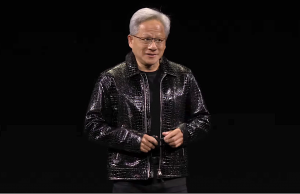Smart World Problems: When the concept is better than the product
![]() This week’s Smart World Problems edition looks at the conundrum of maintaining connected device software, and the rising security concerns with smart cars’ hackability. Sometimes the concept can be better than reality.
This week’s Smart World Problems edition looks at the conundrum of maintaining connected device software, and the rising security concerns with smart cars’ hackability. Sometimes the concept can be better than reality.
When the concept is better than the product
Several manufacturers, from Samsung to General Electric, now offer home appliances with Internet connectivity. This allows people to check on their devices remotely, and turn them on or off as needed using their smartphones or tablets. And while such convenience is appealing, connecting home appliances adds a layer of software maintenance to a product. Are we better off with the familiar analog devices?
High end home appliances are designed to last for years, decades even. But by adding smart functionalities, there’s a possibility that homeowners would have to change appliances in just a few years as the platform it runs on may no longer be functional or the model they have are no longer supported by new software.
“Conversations I’ve had with many companies working in the smart home space acknowledge this decades-long home product lifetime dilemma, but don’t really know how to address questions related to it. GE’s new smart appliances all have apps you can run on iPhones or Android phones, but who’s to say that even in ten years (let alone 15 or 20) we’ll be carrying a device that can still run those apps?,” explained Bob O’Donnell of TechSpot.
Though Donnell’s concern is valid regarding the relevance of technology today being used in the future, companies are already working on future-proofing the smart home so the connected appliances you purchase today will still be as useful in the next few decades.
“The industry is making a push to do similar things that were done when the Internet first gained importance; they made rules so everyone could utilize the same standards and protocols,” said Omer Faiyaz, CEO of, Remo Software Private Ltd. “The IoT needs are the same, and we currently need common protocols to communicate and control devices. The urgency and need for standards to be set for IoT can be easily seen, and efforts are moving in the right direction to create a framework for the industry.”
.
Can smart cars be hacked?
We’ve seen in movies how one can get trapped inside an Internet-connected car because a hacker has overridden the controls. Doors are locked, you can’t get it to start, you can’t get out and you can’t even call for help. This scenario is terrifying enough on screen, but can it actually happen in real life?
According to recent reports, with all the wireless technology in place cars, yes, hacking a vehicle is possible and this is what Senator Ed Markey, D-Massachusetts, discusses in his latest report.
“Drivers have come to rely on these new technologies, but unfortunately the automakers haven’t done their part to protect us from cyber attacks or privacy invasions,” Markey said. “Even as we are more connected than ever in our cars and trucks, our technology systems and data security remain largely unprotected.”
Over the years, we have seen how hackers have disabled cars remotely, tinkered with tire pressure and even disable the braking system – all of which can result in fatalities. Despite these instances, car manufacturers are adamant that no known real cases of vehicle hacking has occurred, simply because hackers would not benefit financially from it. Still, Markey believes that car manufacturers should work closely together with security researchers to come up with solutions that not only protect the privacy of car owners but also prevent hackers from getting in and taking over.
photo credit: Cayusa via photopin cc
A message from John Furrier, co-founder of SiliconANGLE:
Your vote of support is important to us and it helps us keep the content FREE.
One click below supports our mission to provide free, deep, and relevant content.
Join our community on YouTube
Join the community that includes more than 15,000 #CubeAlumni experts, including Amazon.com CEO Andy Jassy, Dell Technologies founder and CEO Michael Dell, Intel CEO Pat Gelsinger, and many more luminaries and experts.
THANK YOU













